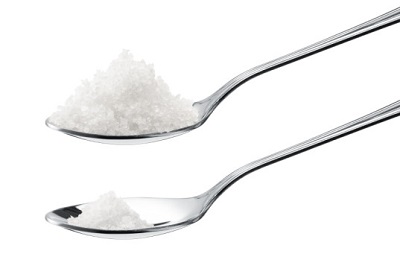
In the world of nutrition, there are often misconceptions about certain food ingredients, and monosodium glutamate (MSG) is no exception. Despite its controversial reputation in the past, MSG has been widely used for decades to enhance the flavor of various dishes.
Historically, MSG has been associated with negative health claims, leading many people to avoid it altogether. In this blog post, we aim to shed light on the truth behind MSG and explain why it can be a part of a healthy diet.
Understanding MSG
Monosodium glutamate, or MSG, is a flavor enhancer commonly used in cooking and the food industry. It is derived from glutamic acid (known as glutamate), an amino acid that naturally occurs in many foods such as tomatoes, mushrooms, and cheese. MSG is typically added to foods like soups, sauces, snacks, and processed meats to enhance their savory taste, known as umami.
Debunking the Myths
 Over the years, several myths and misconceptions about MSG have emerged. Let’s debunk some of the most common ones:
Over the years, several myths and misconceptions about MSG have emerged. Let’s debunk some of the most common ones:
Myth: MSG causes adverse reactions: Many people believe that MSG causes symptoms like headaches, flushing, and sweating, improperly and racially known as “Chinese Restaurant Syndrome.” However, numerous scientific studies have found no consistent evidence linking MSG to these symptoms when consumed in typical amounts. The transient, mild reactions reported are usually the result of individual sensitivity or consuming large quantities of foods high in sodium, rather than MSG itself.
Myth: MSG is an unhealthy additive: Contrary to popular belief, MSG is not a harmful food additive. It is simply a processed form of a naturally occurring amino acid. In fact, MSG contains only one-third of the sodium found in table salt. Using MSG as a salt substitute can lower the sodium content while making it a healthier option for those concerned about their sodium intake.
Benefits of MSG
 Enhances flavor without excess salt: One of the major advantages of MSG is its ability to enhance the taste of food without the need for excessive salt. By adding umami flavor, MSG can make low-sodium dishes more palatable, thereby reducing the risk of consuming excessive sodium. This can be especially beneficial for the older demographic since taste and smell tend to diminish in our later years, which can increase the risk of malnutrition.
Enhances flavor without excess salt: One of the major advantages of MSG is its ability to enhance the taste of food without the need for excessive salt. By adding umami flavor, MSG can make low-sodium dishes more palatable, thereby reducing the risk of consuming excessive sodium. This can be especially beneficial for the older demographic since taste and smell tend to diminish in our later years, which can increase the risk of malnutrition.
Encourages a balanced and varied diet: Incorporating MSG into your meals can help make healthier foods more enjoyable, encouraging you to consume a wider variety of vegetables, lean proteins, and whole grains. By enhancing the flavor of these nutritious options, MSG can promote a well-rounded and balanced diet while enhancing the palatability of the healthy dishes.
Supports reduced food waste: Another benefit of MSG is its potential to reduce food waste. By making dishes more flavorful, MSG can help transform leftovers or less appealing ingredients into delicious meals, preventing them from going to waste.
Tips for Incorporating MSG into Your Diet
 While MSG can be part of a delicious healthy diet, moderation is key. Here are a few tips to make the most of MSG in your cooking:
While MSG can be part of a delicious healthy diet, moderation is key. Here are a few tips to make the most of MSG in your cooking:
- Cook from scratch: By preparing meals at home using fresh ingredients, you have control over the quality and quantity of ingredients used, including MSG. This way, you can enjoy the flavor-enhancing benefits of MSG without worrying about excess sodium or other additives.
- Pair with nutrient-dense foods: Use MSG as a tool to enhance the flavors of nutrient-dense ingredients, such as vegetables, whole grains, and lean proteins. This will help you create delicious and satisfying meals that contribute to a well-balanced diet.
- Don’t overdo it: A little goes a long way. Overuse of MSG or other seasonings may result in an undesirable taste.
MSG has long been misunderstood and demonized, but scientific evidence suggests that it can be a safe and valuable addition to a healthy diet. By separating fact from fiction and understanding the myths and benefits, we can enhance the taste profile, reduce overall sodium intake, and leverage its umami flavor to incorporate more nutrient dense foods into our diet.

